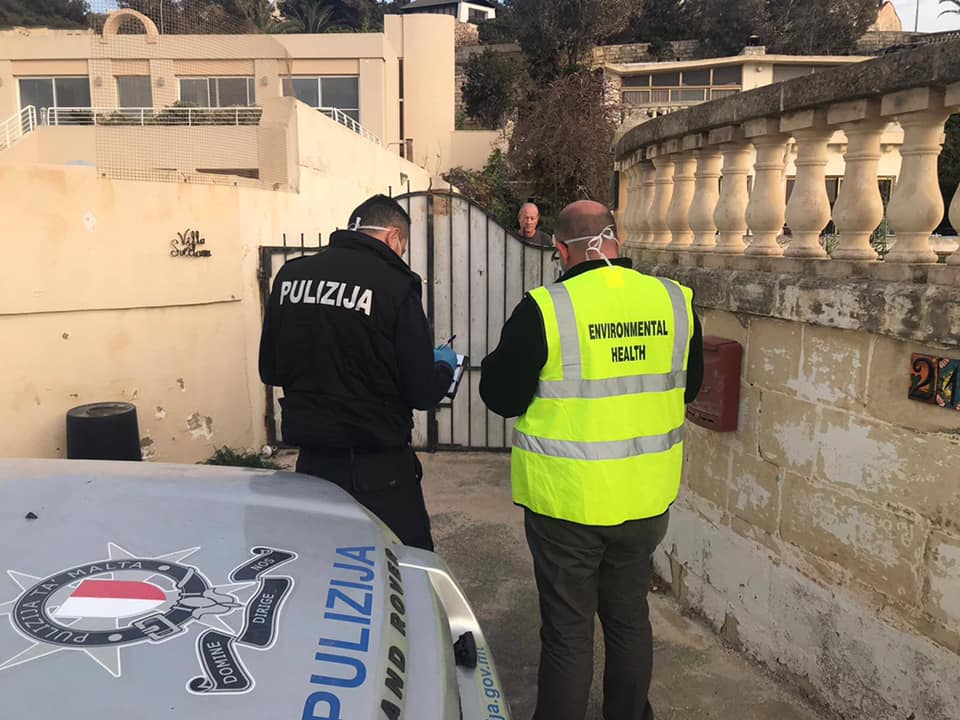GUEST POST: Why Malta’s Plan To Criminalise COVID-19 Transmission Will Undermine Public Health

Malta reportedly plans to criminalise the wilful and careless spreading of the COVID-19 coronavirus, with people found guilty liable to imprisonment varying according to the intent.
As reported by Lovin Malta, Justice Minister Edward Zammit Lewis plans to issue a legal notice which would add COVID-19 to the list of communicable diseases which if passed on give rise to criminal liability.
The list of communicable diseases was first introduced through Legal Notice 137 of 2005 (17th May 2005)244A(2) of the Criminal Code,
However, while the plan sounds great on paper, it is way more complicated in practice and will ultimately undermine efforts to safeguard public health.
Article 244A (1) of the Criminal Code requires that person A would have been diagnosed with a communicable disease and intentionally passes it on to, say, B.

Let’s look at this example:
Tom was diagnosed with COVID-19 at the beginning of April. He wilfully decides to meet John and sneeze or cough in their face. A few days later, John develops symptoms and is subsequently diagnosed with COVID-19.
One could argue that Tom satisfies the criteria of the law and that he shall be criminally investigated and subsequently punished for passing the virus to John. Tom shall be liable to a punishment of four to nine years imprisonment. If as a result of the infection, John dies, Tom shall be liable for the punishment of wilful homicide, up to life imprisonment.
However, 244A (2) speaks of individuals who “knew or should have known” [emphasis added] that they are suffering from a communicable disease.
This sub-article immediately presents a legal conundrum, raising several questions on the status of the individual.
What do we understand by ‘should have known’? Does this imply that an individual who does not know their status could still be prosecuted because they ‘should have known’ they are carrying the virus? But how could they have known?
One may argue that some individuals are at a higher risk than others. But who are these high-risk groups and why are they considered as such?

Photo: Malta Police Force
Some of the symptoms for COVID-19 seem the same for a cold, flu and seasonal allergies. Are we to assume that we are infected with SARS-COV-2 if we sneeze or cough? What about the number of individuals who test positive for the virus but are asymptomatic (not showing any symptoms associated with the virus)? Are those asymptomatic individuals at risk of being prosecuted for infecting others?
The court would here use the reasonable man test – in Malta, we follow the subjective test– it would go on and ask: What would the reasonable man have done in this case? Would the reasonable man know that they could have been infected?
Could our reasonable man also be asymptomatic? If he could have been so, which may be the case, we would have wasted the court’s time and resources, but not just. By the time the case gets to trial and sentencing, we would have possibly violated several human rights, including the right to a fair trial.
Whether the transmission was intentional or through carelessness, the prosecution needs to prove that it was person A who infected B. They must prove this beyond a reasonable doubt, which is the highest legal standard of proof required in criminal law.

In the absence of tests which prove that A infected B, the prosecution would not have a leg to stand on from the very beginning. Also, even if such tests, known as phylogenetic tests, can provide the relationship between the two viral strains, the court cannot base its decision solely on the test; their accuracy is subject to much debate and controversy.
Historically, we know that criminalisation disproportionately impacts those who are marginalised and those who have been dealt a bad hand in life. Criminalising these groups would only exacerbate existing stigma and discrimination in the communities they live in and society at large. This could lead to a lack of disclosure of status, which in turn increases the risk and chances of infecting other individuals.
Furthermore, because the provisions of the law allow for interpretation, we may see a decrease in the number of individuals getting tested.
We have seen this in several countries which criminalise the transmission of HIV infection, for example. The train of thought goes something like this: If I do not know my status, I cannot be prosecuted for passing it on. Ignorance is bliss. And this is exactly what we do not want: Individuals not coming forward for testing. (N.B. Under Maltese law, as we have seen above, you could still be prosecuted even if you did not know your status)
On March 16, UN experts urged states not to abuse emergency measures which could suppress human rights: “While we recognize the severity of the current health crisis and acknowledge that the use of emergency powers is allowed by international law in response to significant threats, we urgently remind States that any emergency responses to the coronavirus must be proportionate, necessary and non-discriminatory,”
Is criminalising the transmission of COVID-19 proportionate, necessary and non-discriminatory? Debatable, at best, but whatever your views on the subject, Article 244A is not the right legal avenue.
Photo right: Malta Police Force
Dr Mark Josef Rapa holds a Doctor of Laws degree from the University of Malta and Master of Laws degree in Health Care Ethics and Law from the University of Manchester. Mark Josef works as a Research Assitant at the School of Social Sciences at the University of Manchester
Lovin Malta is open to external contributions that are well written and thought provoking. If you would like your commentary to be featured as a guest post, please write to [email protected], add Guest Post in the subject line and attach a profile photo for us to use near your byline
